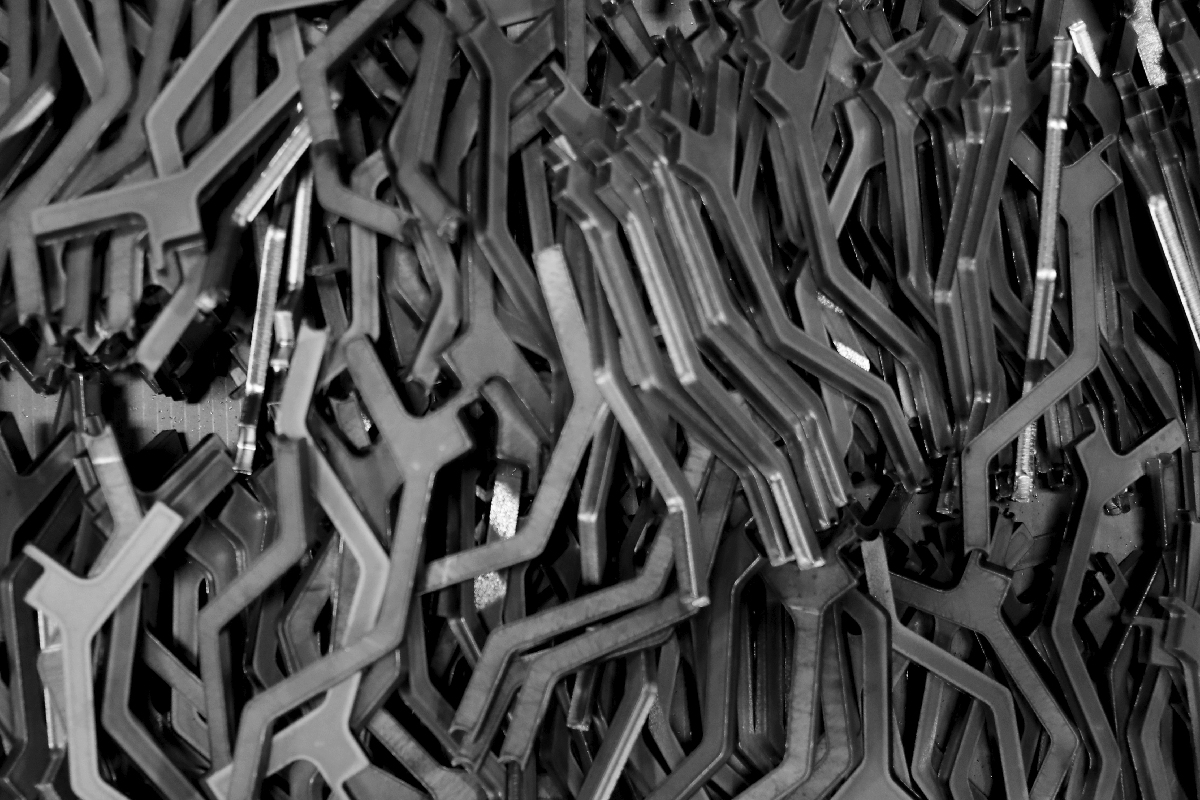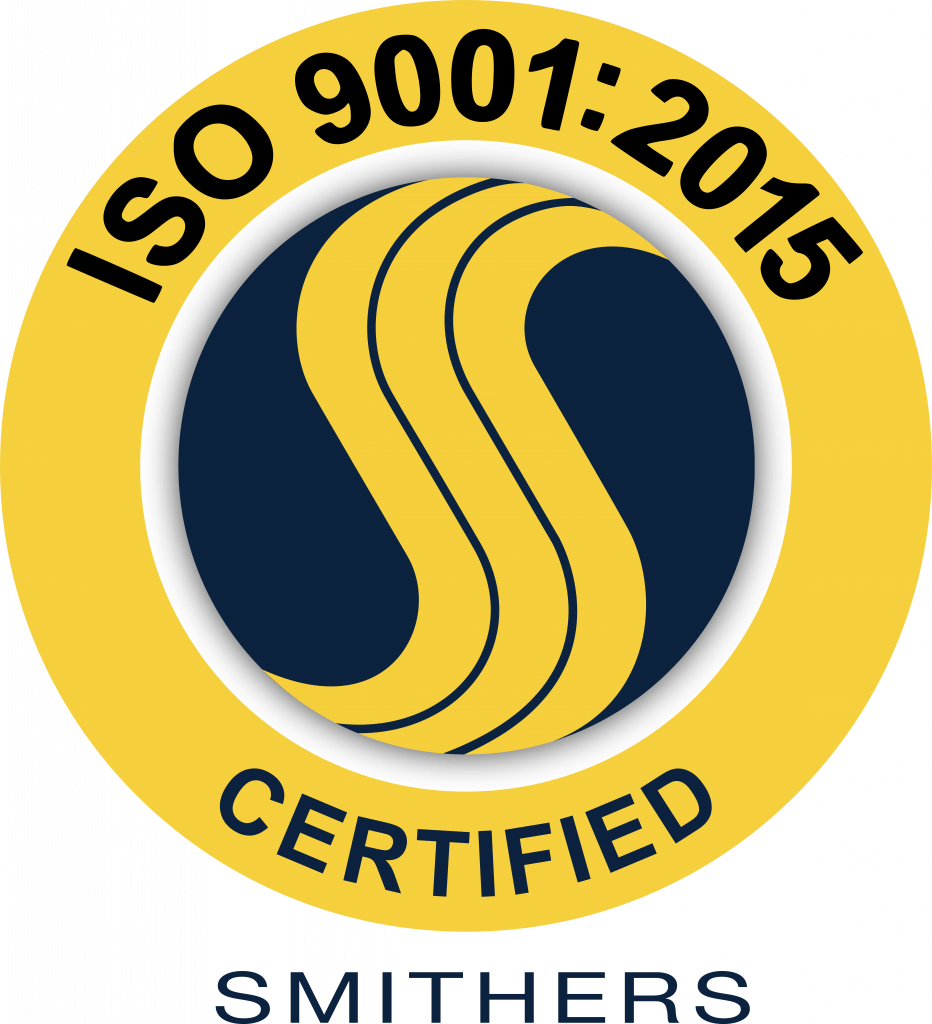When it comes to selecting the right type of metal for your manufacturing needs, there are several factors to consider:
- How will the metal respond to its environment? Will it corrode or oxidize when exposed to water?
- Does the part require strength? If the item will be load-bearing, you’ll need a metal that can resist force, so hardness and tensile strength are critical.
- How easy is it to work with? If you need to form it to a specific shape, is it pliable enough to manipulate? If you need to weld with it, does it accept a weld easily or will there be additional steps or advanced techniques that could affect timelines and cost?
- Last, but never least – cost. Which material will be the most cost-effective for the application?
Stainless Steel
Stainless steel, a versatile alloy consisting of iron and other elements, offers numerous benefits for manufacturing needs.
Benefits:
One of its primary advantages is the exceptional durability it provides, making it resistant to corrosion, stains, and rust. This attribute makes stainless steel ideal for various applications where hygiene is crucial – from kitchen utensils to medical equipment. Moreover, its strength allows manufacturers to create structures with thinner sections without compromising integrity or safety standards. In terms of uses, this alloy finds extensive application in industries such as construction and automotive due to its ability to withstand extreme temperatures and pressures.
Drawbacks:
The initial cost of utilizing stainless steel might be higher compared to other materials like plastic or aluminum alloys. However, the long-term benefits outweigh this disadvantage by far. Its low maintenance requirements result in reduced repair costs over time while ensuring longevity that often surpasses alternative options – ultimately proving more cost-effective in the grand scheme of manufacturing operations.
Mild Steel
Benefits:
Compared to other metals like stainless steel or aluminum, mild steel is relatively inexpensive and readily available in large quantities. Its affordability makes it an attractive option for mass production industries where cost optimization is crucial.
With its durability and high tensile strength, this material works well in construction projects requiring structural integrity while being easily weldable and malleable enough for fabrication purposes such as forming beams or plates efficiently without compromising stability or functionality.
Drawbacks:
Mild steel does not have the same anti-corrosion capabilities as stainless steel. This can be overcome if properly protected through coatings or maintenance measures like regular painting with suitable protective finishes.
Aluminum
Benefits:
A versatile and lightweight metal, aluminum offers a high strength-to-weight ratio, making it an ideal choice for industries that require sturdy yet lightweight materials. This property allows for the production of strong and durable products while minimizing overall weight, resulting in improved fuel efficiency for transportation purposes and reduced strain on structures. Additionally, aluminum’s corrosion resistance ensures longevity and minimizes maintenance costs over time.
Drawbacks:
Aluminum lacks durability compared to other metals like stainless steel or mild steel which limits its use in high-stress applications. Cost is a consideration with aluminum. While the cost of aluminum is higher than steel, we would still consider it an affordable option, especially when considering its benefits.
Copper
Benefits:
One of the key advantages of copper is its exceptional conductivity, making it ideal for electrical wiring and transmission systems. Its high thermal conductivity also allows efficient heat dissipation, leading to its use in cooling systems and heat exchangers. Copper boasts excellent corrosion resistance properties, ensuring durability and longevity in diverse environments such as underground pipes or outdoor structures. Additionally, this malleable material can be easily formed into intricate shapes without compromising its structural integrity—making it suitable for complex designs in architecture or decorative elements.
Drawbacks:
Despite the impressive benefits, there are some considerations when opting for copper. The primary concern relates to cost; due to its limited supply and increasing demand across several industries worldwide, the price of copper tends to be higher compared to other metals commonly used in manufacturing processes. However, considering its exceptional qualities and long-term performance advantages over less expensive alternatives may justify the initial investment required when using copper for specific needs.
Brass
Benefits:
When it comes to manufacturing needs, brass offers a multitude of benefits that make it a popular choice. One of the key advantages is its exceptional durability and resistance to corrosion, making it ideal for applications in industries such as construction and plumbing. Brass also possesses excellent thermal conductivity, rendering it suitable for heat exchange components like radiators and condensers. Furthermore, its malleability allows for easy shaping and forming during production processes, ensuring versatility in design options.
Automotive manufacturers utilize brass fittings within engines due to their reliable performance under high temperatures and pressures. The electrical industry takes advantage of brass’s low electrical resistivity by incorporating it into connectors or terminals where efficient conductivity is crucial.
Drawbacks:
Brass has higher material cost than other common metals such as steel or aluminum alloys used in manufacturing processes. Moreover, fabrication expenses need consideration since specialized tools often come into play when working with this particular metal.
Ultimately choosing the right metal based on your manufacturing needs requires knowledge about their various strengths and weaknesses paired with proper cost-benefit analysis balancing quality of the final product against expenses incurred utilizing one material over another. When working with RiAlto Manufacturing, you can trust in our ability to provide top-quality recommendations tailored to meet your individual requirements.





